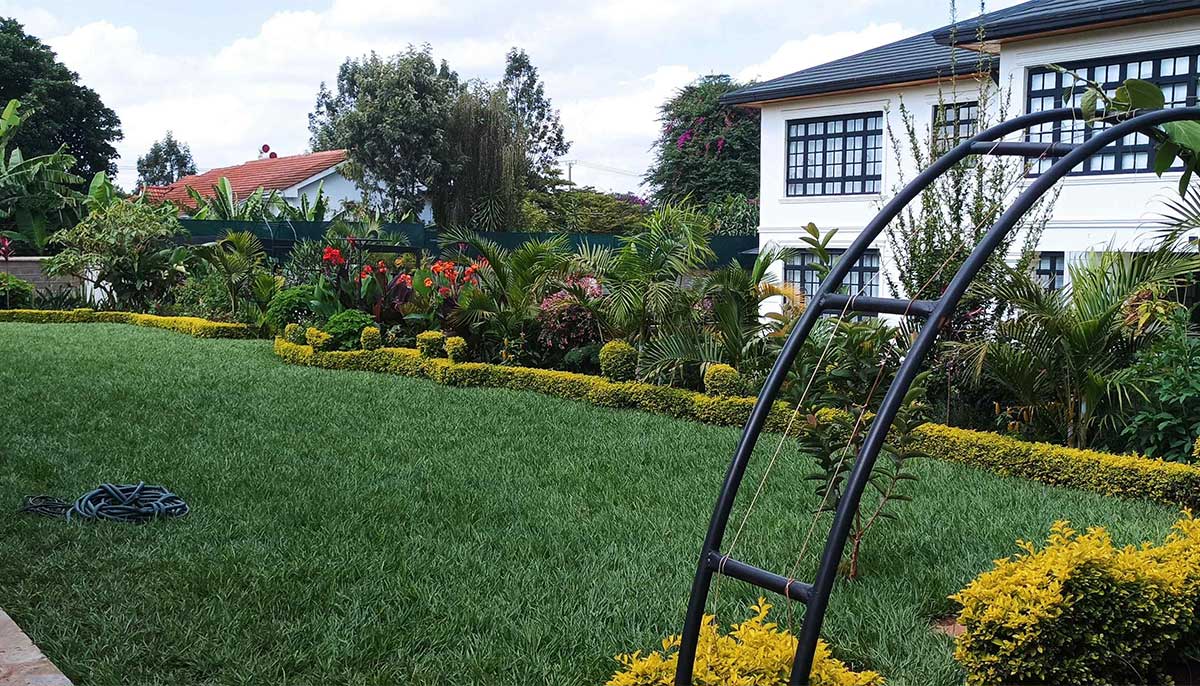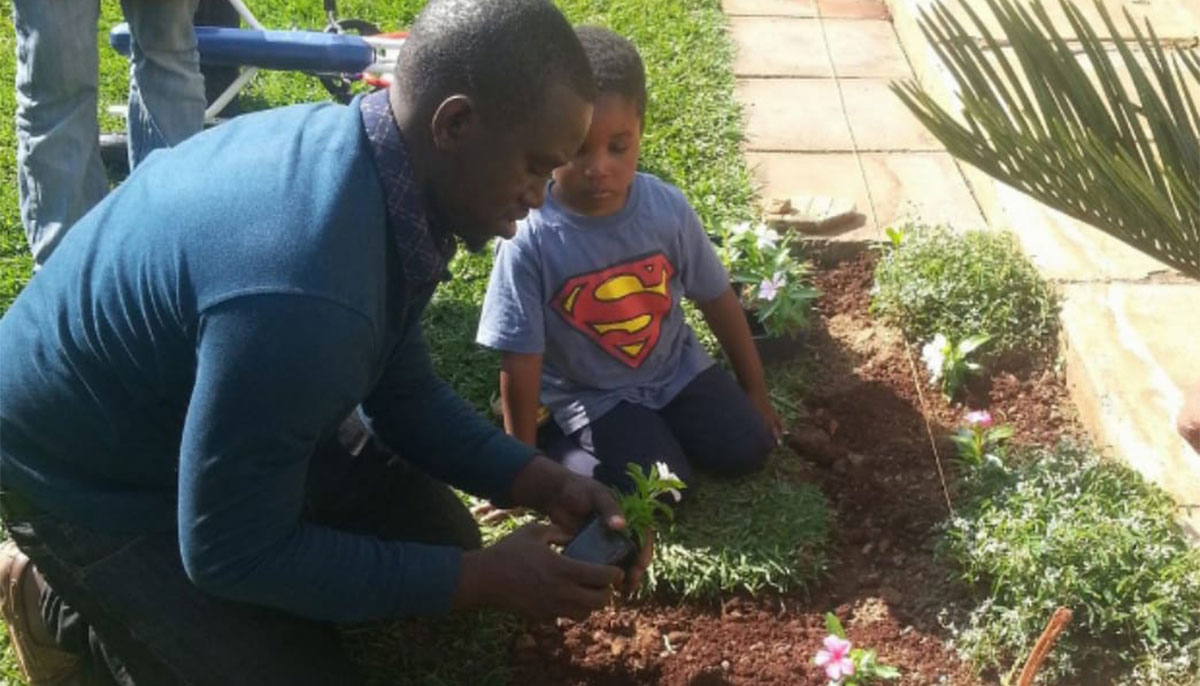Creating and maintaining a healthy and lush lawn in Kenya requires a combination of proper care, suitable grass species, and attention to environmental factors. Here are some essential tips to help you nurture a thriving lawn:
Choose the Right Grass Species
Select grass species that are well-suited to the specific climate and conditions in your region of Kenya. Warm-season grasses like Bermuda grass, Kikuyu grass, or Paspalum are commonly used and perform well in the country’s warm and humid climate. Ensure the grass species you choose can tolerate the amount of sunlight and shade available on your lawn.
Prepare the Soil
Before planting or establishing your lawn, prepare the soil properly. Clear the area of any existing vegetation, rocks, or debris. Loosen the soil with a tiller or garden fork to improve drainage and root penetration. Incorporate organic matter like compost or well-rotted manure to enrich the soil with nutrients.
Proper Irrigation
Water is crucial for a healthy lawn, but it’s essential to practice proper irrigation techniques. Water deeply and infrequently to encourage deep root growth. Avoid frequent shallow watering, as it promotes shallow root development and makes the lawn more susceptible to drought. Water early in the morning to minimize evaporation, and adjust the irrigation schedule based on weather conditions and the grass’s needs.
Regular Mowing
Mowing is a key aspect of lawn care. Maintain the grass at the recommended height for your chosen grass species, as different grasses have different height preferences. Regular mowing helps control weeds, encourages lateral growth, and promotes a denser lawn. Avoid cutting more than one-third of the grass blade height in a single mowing session to prevent stress and scalping.
Fertilization
Applying fertilizers at the right time and in the proper amounts is essential for a healthy lawn. Conduct a soil test to determine the specific nutrient requirements of your lawn. Based on the test results, choose a suitable fertilizer and apply it according to the recommended rates. It’s advisable to use slow-release or organic fertilizers to provide a steady supply of nutrients over time.
Weed Control
Weeds can quickly invade and weaken a lawn. Implement proper weed control measures, including hand-pulling or spot treatment with herbicides, to keep weeds in check. Regular mowing at the appropriate height can also help suppress weed growth.
Aeration
Periodic lawn aeration is beneficial for improving soil compaction and enhancing water and nutrient absorption. Aerate the lawn using a garden fork or a mechanical aerator to create channels for air, water, and nutrients to penetrate the soil.
Overseeding
Overseeding is the practice of adding grass seed to an existing lawn to improve density and fill in bare patches. It helps rejuvenate the lawn and maintains its lush appearance. Choose high-quality grass seed that matches your existing grass species and follow proper overseeding techniques for successful results.
Pest and Disease Control
Monitor your lawn regularly for signs of pests or diseases. Practice integrated pest management techniques, which include cultural controls, biological controls, and, if necessary, targeted use of pesticides. Proper lawn maintenance practices, such as regular mowing and appropriate fertilization, help prevent pest and disease issues.
Regular Maintenance
Routine maintenance is essential to keep your lawn healthy and attractive. This includes removing debris, dethatching when necessary, and regular watering, mowing, and fertilizing as per the grass’s requirements. Conduct regular inspections to address any issues promptly and maintain the overall health of the lawn.
By following these tips and tailoring your lawn care practices to the specific needs of your grass species and local conditions, you can nurture a healthy and lush lawn in Kenya. Remember that consistency, proper care, and attention to detail are key to achieving and maintaining a vibrant and thriving outdoor carpet of grass.




